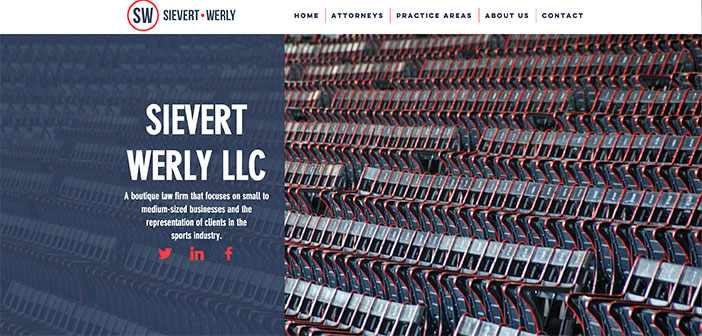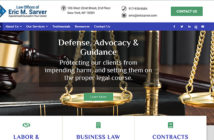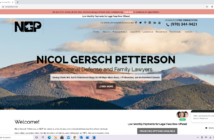Dan Werly has securely established his national reputation with a variety of marketing tactics. Here’s how he did it.
It took Dan Werly 16 months after leaving his last law-firm job to open his own practice. The gap wasn’t entirely by choice. He had followed his wife, an Army psychologist, from Chicago to a temporary post in Georgia, where he was not licensed to practice. But it was two years very well spent. Werly had worked in the sports-industry group of his Chicago firm and wanted to practice in that niche on his own. While awaiting an opportunity to do so, he launched an ambitious sports-law website and began to promote it on Twitter, started a sports-law podcast, taught a course on arbitration in sports at a law school, and became vice chair of the ABA sports law section.
When his wife was recently transferred again, this time to a semi-permanent posting in Nashville, where state bar rules allow him to practice while his application for a license is pending, he got the chance he had been waiting for. He teamed up with a colleague who handles sports matters mostly at the college level, complementing his professional-sports focus, and together they launched Sievert Werly LLC in March, a boutique practice handling litigation, negotiations and other matters for sports industry businesses and clients.
It is an ultralow-overhead virtual law firm run out of the partners’ home offices. Social media posts and an email blast to their respective contact lists were about all their budget would allow them to spend on announcing their arrival. Werly didn’t need to do more than that. Months before he opened the firm and accepted his first client, he was already a “leading US sports lawyer,” as the New York Post put it in a story that quoted him about a sports star accused of rape.
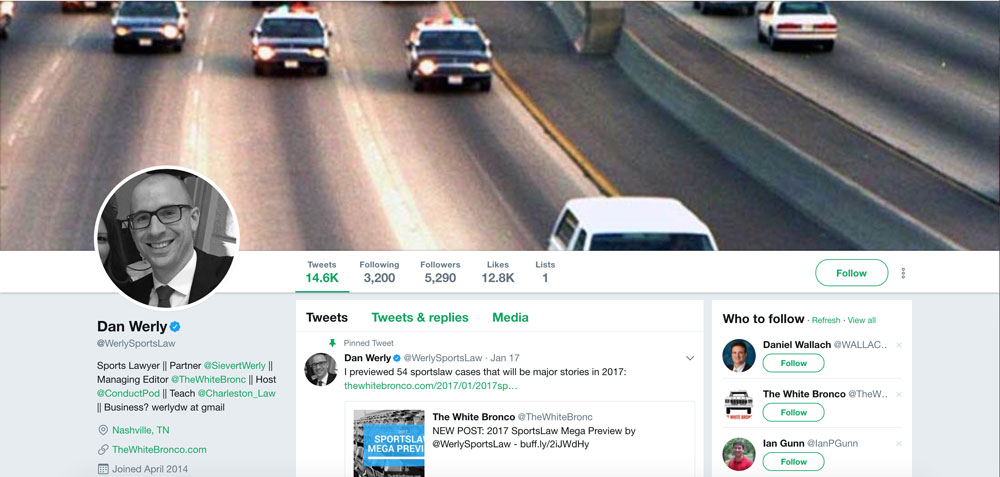
Boosted by ‘Deflategate’
Luck played a part in boosting Werly so quickly into the national limelight. “I was fortunate to start my blog during one of the biggest sports legal cases of all time: Deflategate,” Werly explains. He named his blog TheWhiteBronco.com, after the SUV driven by O.J. Simpson in his nationally televised, low-speed police pursuit, a spectacle that, as the “about” section on the website explains, “marked the beginning of the media’s coverage of the intersection of sports and the law as we know it today.” When Werly launched it at the end of 2015, another media frenzy was in full swing over a sports star in legal peril, New England Patriots quarterback Tom Brady accused of illegally tampering with footballs. The scandal gave Werly plenty to cover on his sports-law website and lots of followers right off the bat.
“I was one of the handful of people who was really digging in deep on some of the court filings,” he says. “Because I was very familiar with litigation and how federal courts work, I was able to digest that information and relay it in a manner that was readily understandable for an average reader or reporter. Through that I got noticed.”
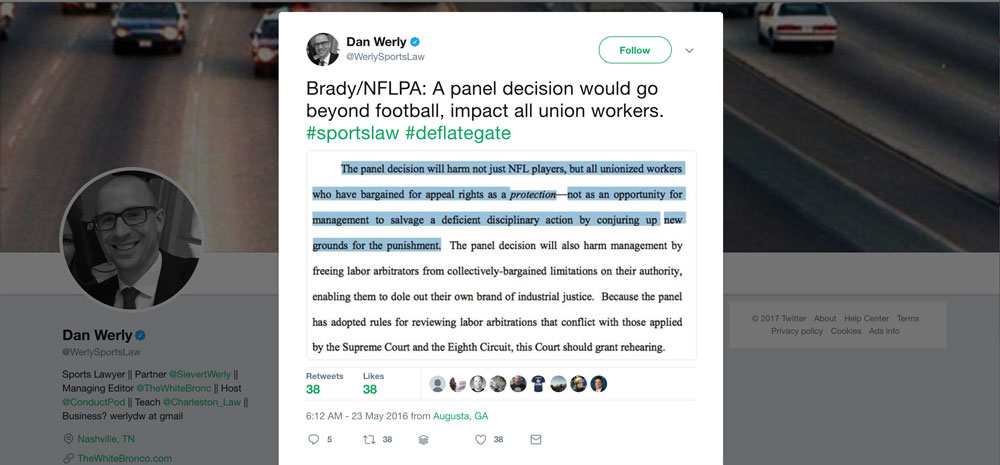
Adding Value on Twitter
Werly rose above the Deflategate cacophony on Twitter by posting actual snippets of court documents with his 140-character-or-less expert annotations attached. It is a gimmick he continues to use to good effect in tweeting about legal matters.
“I will take the actual court filings themselves and read them and take screenshots of excerpts and explain them,” Werly says. His tweets dissecting the legal documents generated by the football scandal “added value to the debate that the general public wasn’t getting anywhere else.” Some were retweeted, drawing new followers. “At the beginning it was pretty slow. But once you start putting out interesting content, people will notice and start coming back.”
The first national reporter to call Werly was a sportswriter with USA Today who had followed him on Twitter and wanted help understanding a legal issue. “After that, he quoted me once or twice and that started a relationship with the press that has just stemmed from there. Over the last 18 months or so I have been quoted in just about every major publication. Once you get the first break on that front, it snowballs a little bit,” he says.
Time spent on Twitter can yield other benefits, Werly adds. “I’ve made a number of connections with people in the industry that have really helped my career. You never really know who’s paying attention and reading or listening. It may be someone who you really admire who you would like to meet who may already know you. But don’t just sign up with Twitter. Engage with people and build relationships.”
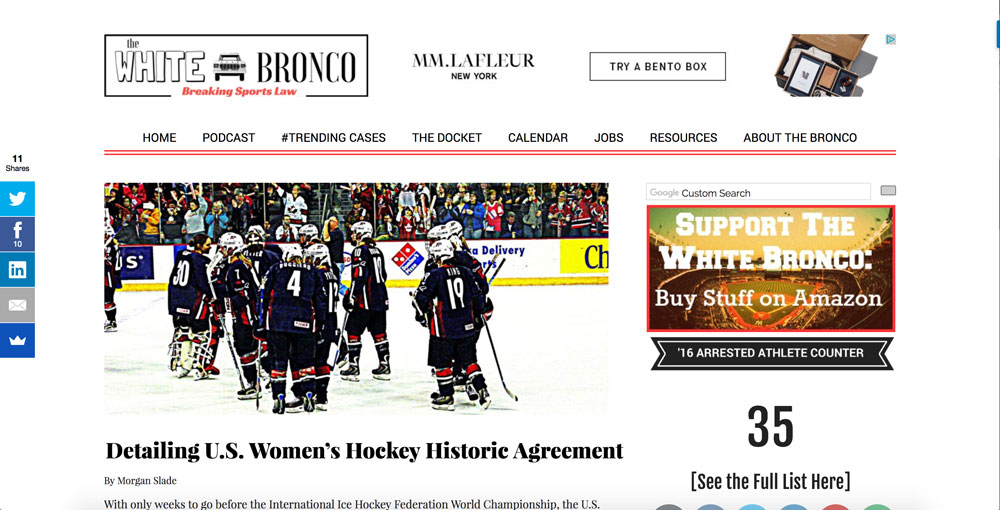
Writing about Law
Werly broke into writing about law during his stint as an associate at Foley & Lardner in Chicago. He noticed that the Chicago Daily Law Bulletin ran regular columns by practitioners of various sorts, pitched the idea of a monthly column on sports law, got the gig and took it from there. Columns he later wrote for national sports websites including Bleacher Report and a Sports Illustrated blog, the Cauldron, began to give him national name recognition.
TheWhiteBronco, which was named to the ABA’s top 100 law blogs lists in 2016, is the main outlet for his writing these days. With a team of more than half a dozen regular contributors, it is more ambitious than most solo lawyers would care to take on. The time he can spare for the site is likely to diminish as his practice picks up, he says. But lawyers can showcase themselves and their expertise through writing even if they have no blog at all of their own–by guest-blogging on other sites, Werly says. “Write for something that you enjoy reading, in the industry in which you are trying to make a name for yourself, because then it will be fun, and it’s probably a good relationship to build on as well.”
Werly adds, “There’s a lot of time involved and you have to be consistent. But there’s no doubt that at the end of the day it will really help your career.”
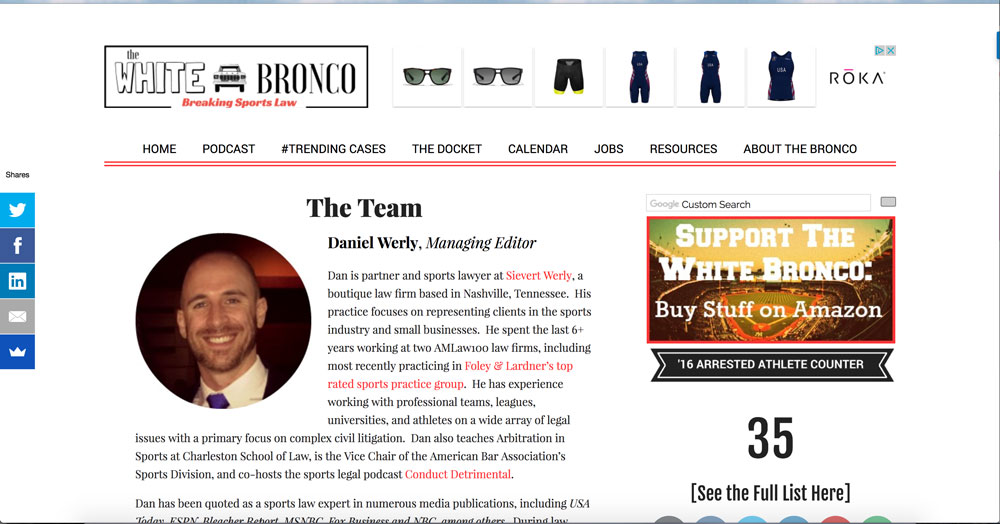
‘Demonstrating Value’ on Podcasts
Werly has more recently come up with a new way to showcase his sports-law know-how and draw an audience: a podcast called Conduct Detrimental, which he co-produces with a sports-bar colleague Daniel Wallach. They launched it in October 2016, and released a couple dozen episodes in the first six months, available on iTunes, Stitcher and several other platforms.
Podcasts are “blowing up,” Werly says. “People love them.” For lawyers, they’re a welcome break from paperwork. “I like learning about the law but in my free time I don’t want to have to sit down and read an article because I’m sick of that,” he explains. “But if there’s a podcast, if I want to go on a run, I can listen to it. It’s a totally different medium.”
Conduct Detrimental has gotten nine five-star reviews on iTunes so far from listeners who give it their “highest recommendation” and call it “an excellent listen.” “We talk about areas of law and issues that we love so it never feels like work. So in that respect, it’s a labor of love, but we have been able to build an audience. We got picked up by a podcast network that helps with our marketing. And we have sponsors rolling in so that’s nice.”
It has helped burnish Werly’s brand as a top sports lawyer. “It has also made me a lot more comfortable speaking on my feet,” he says. “It’s a good way to get some practice speaking about the issues without being in front of a judge or client. When I went on ESPN radio the other day, it was almost second nature at that point.”
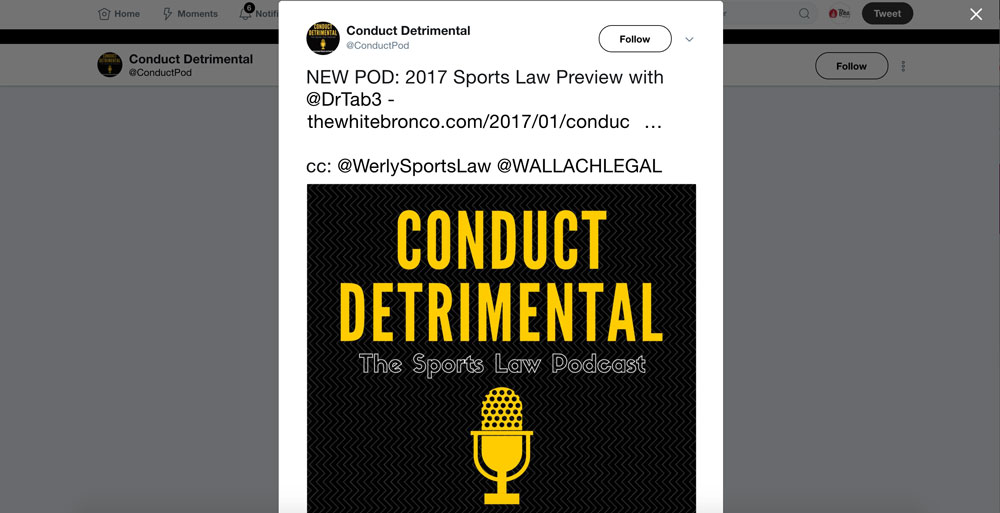
The Right Way to Do Podcasts
Preparation is usually minimal. “We script the high-level points we want to cover, but we obviously don’t script everything,” Werly says. Some issues require more preparation than others. And when a guest will be appearing on the podcast, as has been the case about half of the time, preparation is all the more important. “We want to make sure we’re asking the best questions so we need to know as much about that person as we can before we go on. But the preparation is usually just a few hours at most.”
The technical aspects of podcasting are “somewhat complicated” but worth learning about, Werly says. “There are tons of podcast guides online. I would say read more than one of those because it will make a big difference in how easy it is for people to find your podcast on iTunes or Stitcher or some of the other podcast hosting services,” Werly says. “It’s a lot harder to go back and fix things later. And if you do it the wrong way, you can really limit the size of your audiences.”
Werly adds, “I have never had a client come to me and say, hey, I listened to your podcast, I want to hire you as a lawyer. But I think it is really a valuable piece of that whole package of getting your expertise out there and showing who you are as a person and a lawyer, and a part of the marketing effort that I use now as a proprietor of a law firm.”
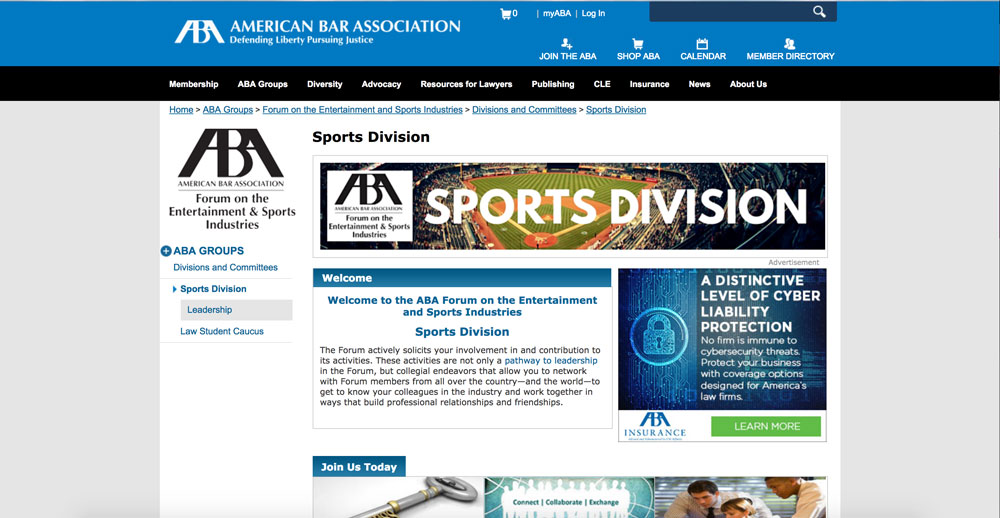
Giving Back to the Bar
Teaching the law school class, which he created from scratch, called arbitration in sports, gave Werly yet another credential with fringe benefits. “It certainly adds a bit of credibility” to the resume, and it “shows that you are enough of an expert in that area to teach it at a law school,” Werly says. “But what surprised me was how much I actually learned from teaching. I really had to dig in on issues that I wasn’t as familiar with. And hearing the students’ questions really made me think about the issues in a different way.”
Getting named vice chair of the ABA sports division was another plum for Werly’s resume—albeit one that required a significant commitment. “I probably spend between 6 and 10 hours a week on that responsibility so it is a decent chunk of my time, but I totally think it’s worth it and it’s a lot of fun,” he says. “You’re working closely with people in the industry who you want to get to know better, including general counsel from numerous pro sports teams, league lawyers, and all sorts of people who are part of the sports division’s leadership.”
Bar activities are “as much as anything a really good relationship builder,” he says, and lawyers starting firms of their own need as many of those opportunities as they can get. “The biggest benefit for me is that I am able to develop relationships with a lot of people in the industry –professional relationships but also personal friendships.”

